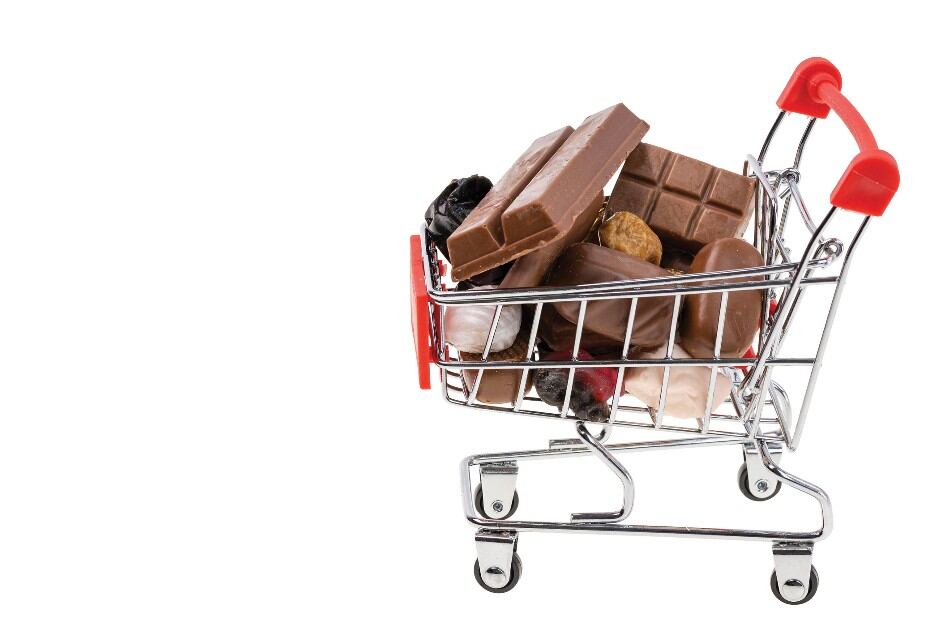The cost of cocoa has steadily increased over the past two years and has roughly doubled since the beginning of 2024. Last week, during Amsterdam Cocoa Week, where the industry met to discuss farmer income and other sustainability issues, it reached a record 4,670 pounds a metric ton on the London ICE futures exchange on Thursday (8 February). At the time of writing latest price for cocoa on ICE New York was: $5,715.33.
In New York, the benchmark ICE cocoa futures hit a new all-time high of $5,874 a ton, closing up 7.3% at $5,805, having risen about 90% since the start of last year, Reuters reported.
Bloomberg has also reported there’s no sign of the price surge easing soon due to a supply shortage caused by climate change in the main cocoa-growing countries in West Africa (primarily Cote d’Ivoire and Ghana). A recent Reuters cocoa poll forecasted a global deficit of 375,000 tons in the 2023-24 season, more than double the average view in the previous survey in August, indicating a third successive supply deficit for the market.
Extreme weather
According to Everstream Analytics, global cocoa prices are at a 40-50-year high due to extreme weather, disease, and geopolitical issues, hitting Valentine’s Day sales as consumers worldwide feel the pinch.
Everstream’s Chief Meteorologist, Jon Davis, told this publication global cocoa prices are at a 40-50-year high due to extreme weather, disease, and geopolitical issues. “With Valentine’s Day, this issue is set to be felt by people worldwide on how extreme weather in West Africa is impacting the cocoa supply.”
He said according to the United States Department of Agriculture (USDA), chocolate prices have risen three times faster than the rate of broader inflation.
“Recently, there have been weak to moderate harmattan conditions in West Africa, which has stressed the trees. Harmattan winds are scorching, dry winds (with unusually low humidity levels) that form over the Sahara Desert and, at times, can impact the cocoa-growing areas in West Africa. The harmattan conditions have not been severe but more in the weak to moderate category. Historically, harmattan conditions have caused severe stress on the trees and reduced production for an extended period. This is not a severe event but more in the weak to moderate category. That said, it is another period of stress on the crop - in this case, the trees.”
He also said in Ecuador, the largest cocoa producer outside of West Africa, arid conditions late last year and so far this year have stressed the crop and reduced yields.
“The El Nino event in the Equatorial Pacific is responsible for the issues as the warm waters in the Pacific are highly correlated with dry/warm conditions and crop problems in and around Ecuador.”
Value chain
Emily Stone, founder of specialty cocoa dealer Uncommon Cacao, told delegates at Amsterdam Cocoa Week that she believed cocoa was “fungible” and called for the “decommoditization of the fruit, claiming high prices can be sustained in the value chain. “Ultimately [the high price of cocoa], this may impact the cheapest chocolate, making it more expensive in a way that consumers choose not to buy it,” she said.
Surveys and data in the US predict that retailers are still forecasting that each shopper, on average, will spend more on this Valentine's Day than they did in the past five years. Still, as Stone said, research suggests that some shoppers have switched to cheaper chocolate and candy or buy less.
Confectionery giant Hershey has reported a 6.6% drop in sales during the fourth quarter compared with the previous year. In an earnings call on Thursday (8 February), Hershey CEO Michele Buck said: "Given where cocoa prices are, we will be using every tool in our toolbox, including pricing, as a way to manage the business.”
Billy Roberts, senior food and beverage economist at CoBank, said in a report earlier this month that retail chocolate prices are up about 17% over two years and will continue to rise.
“Cocoa prices are hitting chocolate candy manufacturers really hard,” he told CNN. “And it looks like it’s not necessarily going to subside anytime soon.”
Traders were also cautious a cocoa shortage would extend into next year, with missing volumes from this season's crop having to be filled with beans from the next. An analyst at Citigroup Inc. told Bloomberg cocoa may reach highs of $10,000 a ton as a result.

